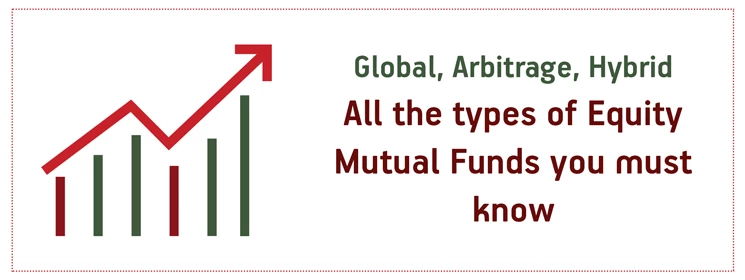-
Our Products
Our FundsFocus Funds
-
Self Care
Self-ServiceFind InformationWays To TransactPartner Solutions
-
Downloads
- Learnings
- About Us
-
More
-
Shareholders
-
Shareholders
-
-
SIP Calculators
- Back
-
Shareholders
Global Arbitrage Hybrid: Understanding All Types of Equity Mutual Funds

Aug 19, 2017
6 mins
3 Rating
Are you someone who loves the idea of bungee jumping? Can you take a leap of faith with the idea that you might just end up making loads of cash? Or are you the tortoise who loves to win the race slowly and steadily? No matter what type of person or investor you are, there will be an equity mutual fund to suit your needs.
Here are the types of equity based mutual funds you really need to know about:
Equity Linked Savings Schemes
ELSS funds are your tax planning mutual funds. If you’re big on saving taxes under Section 80C of the Income Tax Act, then you’ve got yourself a winner. When you invest in an ELSS you qualify for a tax deduction up to Rs. 1,50,000. But remember these funds come with a mandatory lock-in period of three years.
Wait, my money is locked in?
Yes, that means you can’t withdraw any funds during this time. Also, don’t forget that ELSS investments are predominantly stock market investments. So all risks associated with the stock market are going to be associated with an ELSS.
If you’re in for the long haul and you’re willing to take a certain amount of risk, then equity fund has the potential to give you reasonable returns. Bottom line: ELSS funds are not for risk-averse investors and are instead for generating wealth in the long-term and thus, plan for important milestones such as your child’s education, or your own retirement.
Also Read - What is ELSS?
Equity-oriented hybrid funds
In these funds at least 65% of your portfolio has to be made up of equity and the rest is debt. These funds tend to be less volatile because of the presence of debt instruments. So if you’re the type of investor who is no longer capable of taking too much risks because you have people depending on your income and thus want to grow your wealth without the risks of equity then explore this fund option.
Arbitrage funds
These are moderate-risk mutual funds that allow you to invest in both equities and in debt. Again, to be considered as equity funds, at least 65% of the portfolio needs to be stocks. If you have plenty of easily available cash you want to store away for a while, arbitrage funds are the option for you. Rather than investing directly in equity, they exploit the price differences between the cash and the derivatives or related segments in the stock market.
Equity Funds that differ by market capitalisation
Now what’s market capitalisation or market cap? A company’s stock currently held by all its shareholders multiplied by the market price of one share is equal to market cap.
|
Company’s stock currently held by all its shareholders |
X |
Market price of one share |
= |
Market capitalisation |
So the bigger the company, the bigger the market cap.
- Large-cap funds: Big companies are usually well established and therefore considered stable to invest in.
- Mid-cap funds: These funds invest mostly in medium-sized companies. Now, these companies are yet to become big. If they succeed and you’re one of the lucky few to have invested in them then you stand a chance to make money. But if they fail then the risks are even greater.
- Small-cap funds: This is like investing in a startup. Highly risky with a potential for growth and success. You can hardly predict which way a startup is going to go. Potentially reasonable returns on one hand and great losses on the other.
Diversified funds
Money in this fund is spread across different companies and market capitalisations. Diversified funds are considered riskier than large-cap funds but less risky than small-cap and mid-cap funds.
Sector funds
These funds invest in companies operating in a single sector to take advantage of positive conditions in a specific sector of the market, such as FMCG, financial services, healthcare or technology etc. But keep in mind that risk levels are high for sector specific funds.
Global funds
With these funds you can invest in a particular geographic area such as Europe, Asia, the U.S., or Japan. Global funds are essentially sector funds that look for stocks globally. So bottom line is: invest in these funds only if you have intimate knowledge of a particular geography or sector.
Equity funds have potential to grow wealth, and your fund manager is the person to help you gain from investing in them! So sit back and enjoy the 6 benefits of having someone smart and awesome handle your money.
Mutual fund investments are subject to market risks, read all scheme related documents carefully.
Similar Articles





 1800-270-7000
1800-270-7000









